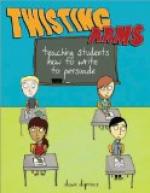But though I loved Rugby and was happy there, I can’t say I was a success. I made few friends, who have since, with one exception, drifted out of my life. I was too timid to enjoy Rugger. I never achieved distinction at cricket. I got into the sixth my last term, but hadn’t the force of character to enjoy the prefectural powers which that fact conferred upon me. The fact is that I left when I was 16, and it is between 16 and 18 that the full enjoyment of school life comes and boys reap the harvest they have sown. Had I stayed another year I should have belonged to the leading generation, strengthened my friendships and developed what was latent in my character. As it was, I left at an unfortunate age. I was pushed into the sixth a year before my contemporaries. My friendships were only half formed, and I had only just begun to feel strength of body and mind developing in me.
As a junior I was too conscientious, and not light-hearted enough. I hardly had any adventures at Rugby, because I had an incurable instinct for keeping rules. I worked hard at mathematics and French, and my report generally read, “Good ability. Might exert himself more.” At classics and chemistry I did as little work as possible, and any report generally read, “Hard-working but not bright.”
On the whole I think I was pretty happy at Rugby; but I never look back to my school days as the happiest part of my life. I have had many happier times since. But still, my house was a good one. Jacky, the housemaster, was wonderfully kind and wise. He hardly ever interfered with the affairs of the house, but left it all—in appearance—to the “Sixths.” Actually, nothing escaped him. The tone of the house was on the whole extraordinarily clean and wholesome, and the fellows who had dirty minds were a small minority, and easily avoided. At all events, very little of that sort of thing reached me.
At sixteen and a half I went to the Royal Military Academy at Woolwich, commonly known as “the Shop.” There I spent the two most miserable years of my life, and made the second of my great friendships. In these days the Shop was still a pretty rough place, and at the moment it was unusually full. I think there were over 300 fellows there altogether, and there were about 70 in my term. My first experience was unfortunate. I was interviewing the Adjutant, a keen sportsman and a bit of a tartar. He eyed me unfavourably, asked what games I could play, and when I replied that I had no great proficiency in any he commented, “Humph, a good-for-nothing!” and dismissed me.
I am by nature slow, stolid and clumsy. I was bad at being “smart”; I was slow and clumsy at drill; map making and geometrical drawing were physical impossibilities to me; I was incredibly slow and stupid at machinery, mechanism and electricity. The only subject which interested me was military history. In my first term I dropped from about forty-fourth to about seventieth in my class, and I kept near the bottom until my fourth term, when I failed in my electricity exam., and had to stay one term more. In the same term I received a prize for the best essay on the lessons of the South African War.




